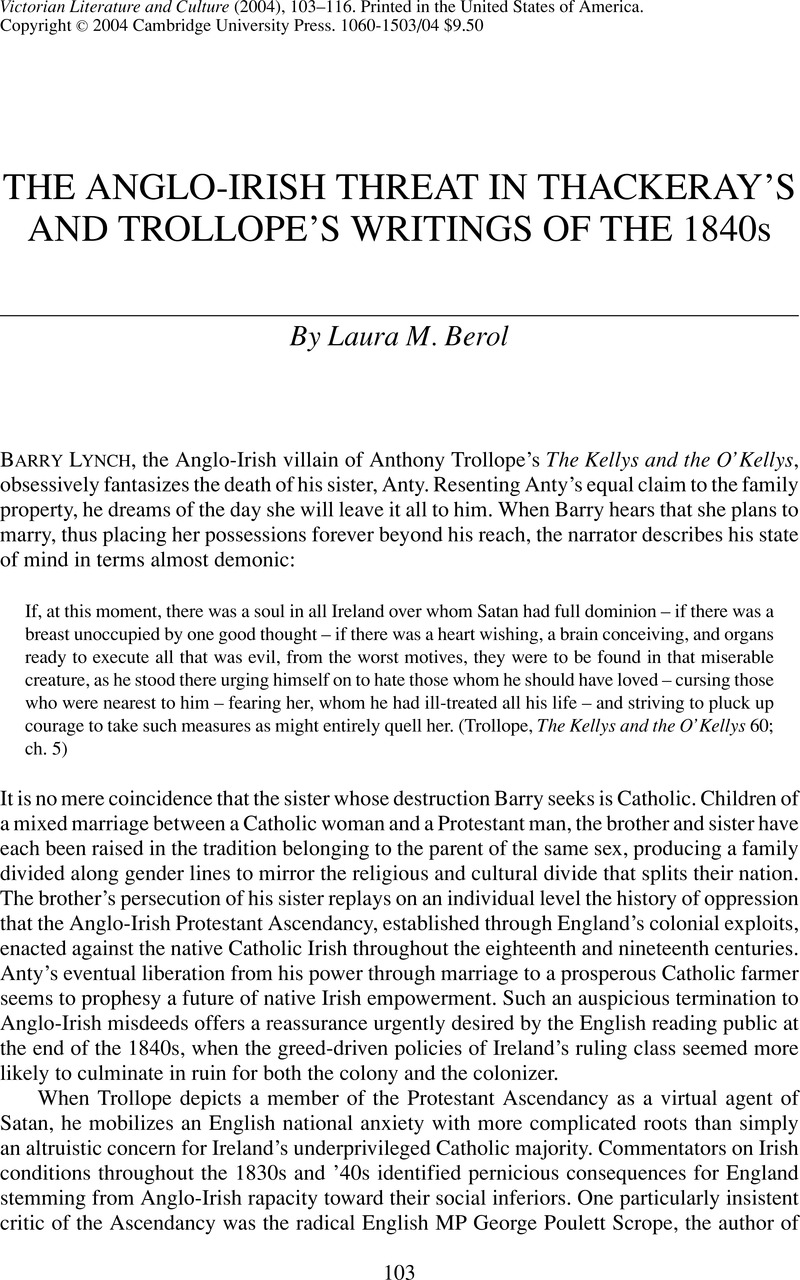Crossref Citations
This article has been cited by the following publications. This list is generated based on data provided by Crossref.
Cove, Patricia
2016.
“THE BLOOD OF OUR POOR PEOPLE”: 1848, INCIPIENT NATIONAL IDENTITY, AND THE FRENCH REVOLUTION IN ANTHONY TROLLOPE'SLA VENDÉE.
Victorian Literature and Culture,
Vol. 44,
Issue. 1,
p.
59.
Judd, Catherine Nealy
2017.
Western plague literature, the Irish Famine and Anthony Trollope’sCastle Richmond.
Irish Studies Review,
Vol. 25,
Issue. 2,
p.
215.
Romanow, Jacob
2024.
Mediating Whiteness: Triangular Racialization in the Anglo-Indian Picaresque.
Victorian Literature and Culture,
Vol. 52,
Issue. 3,
p.
512.



